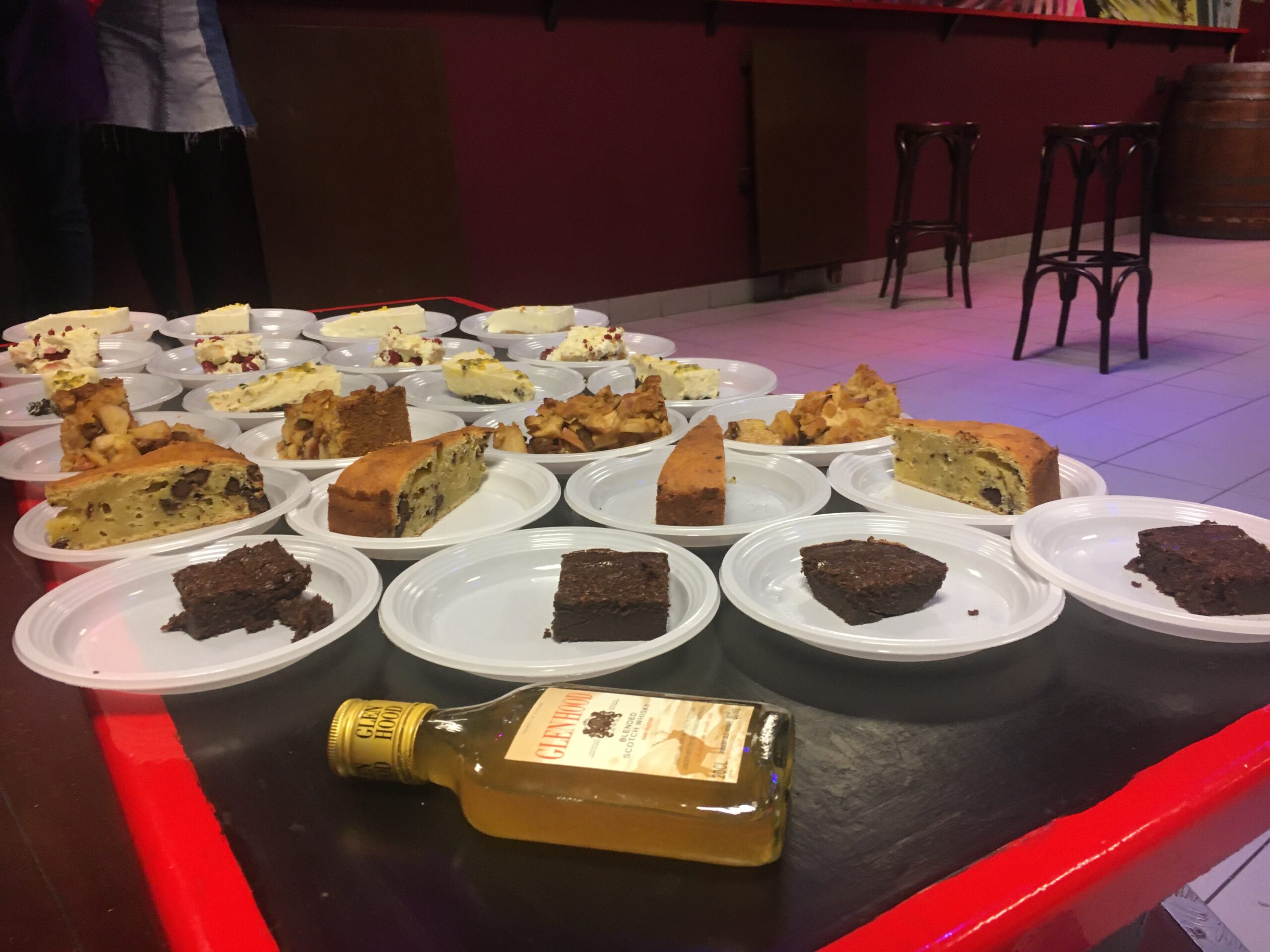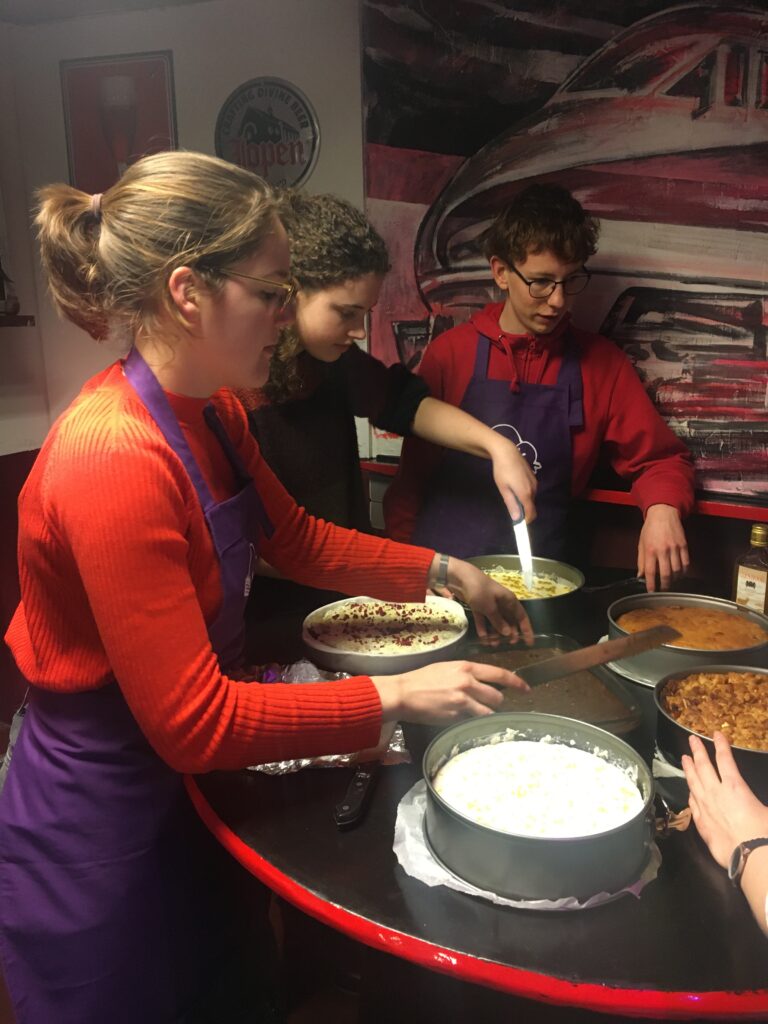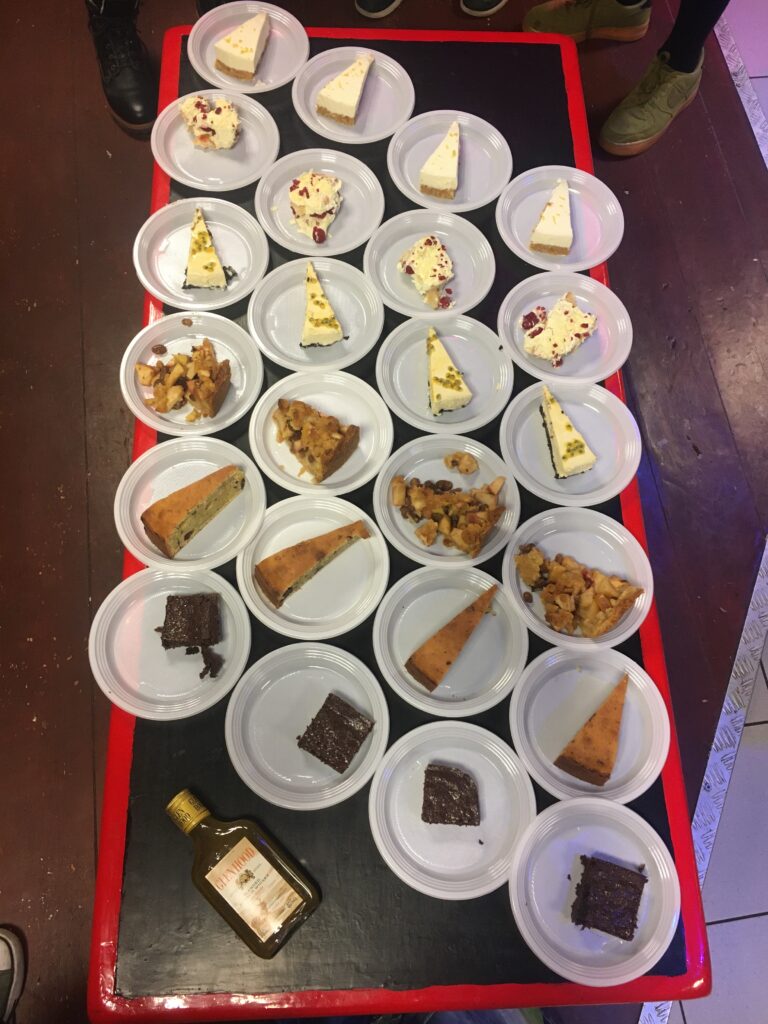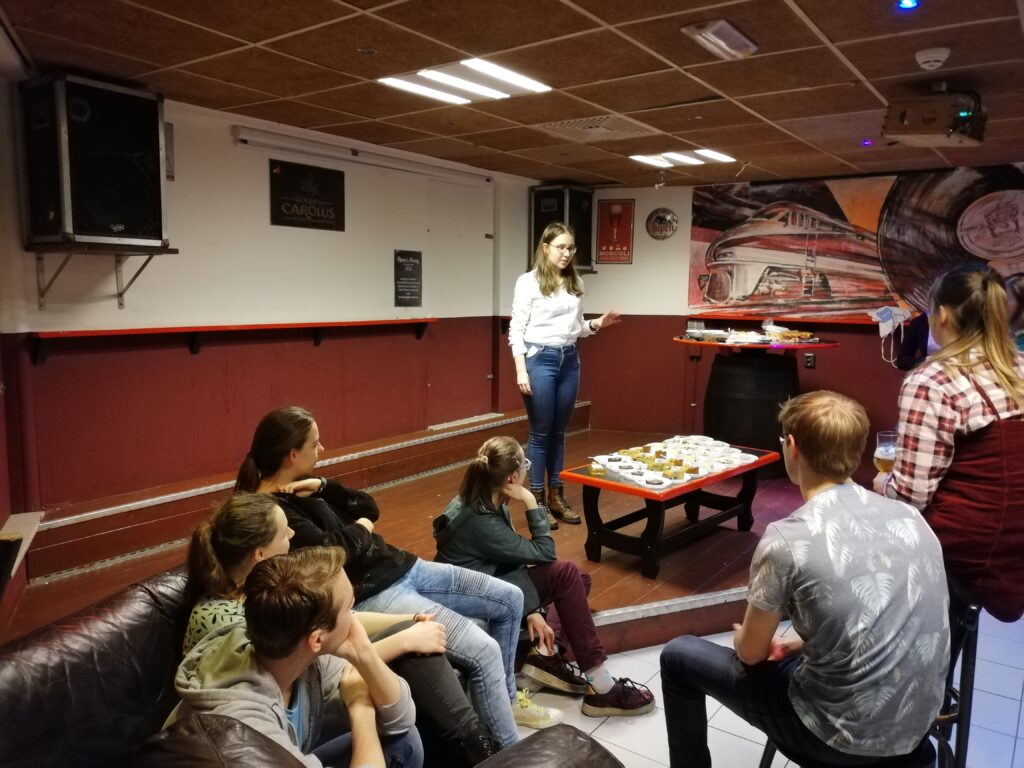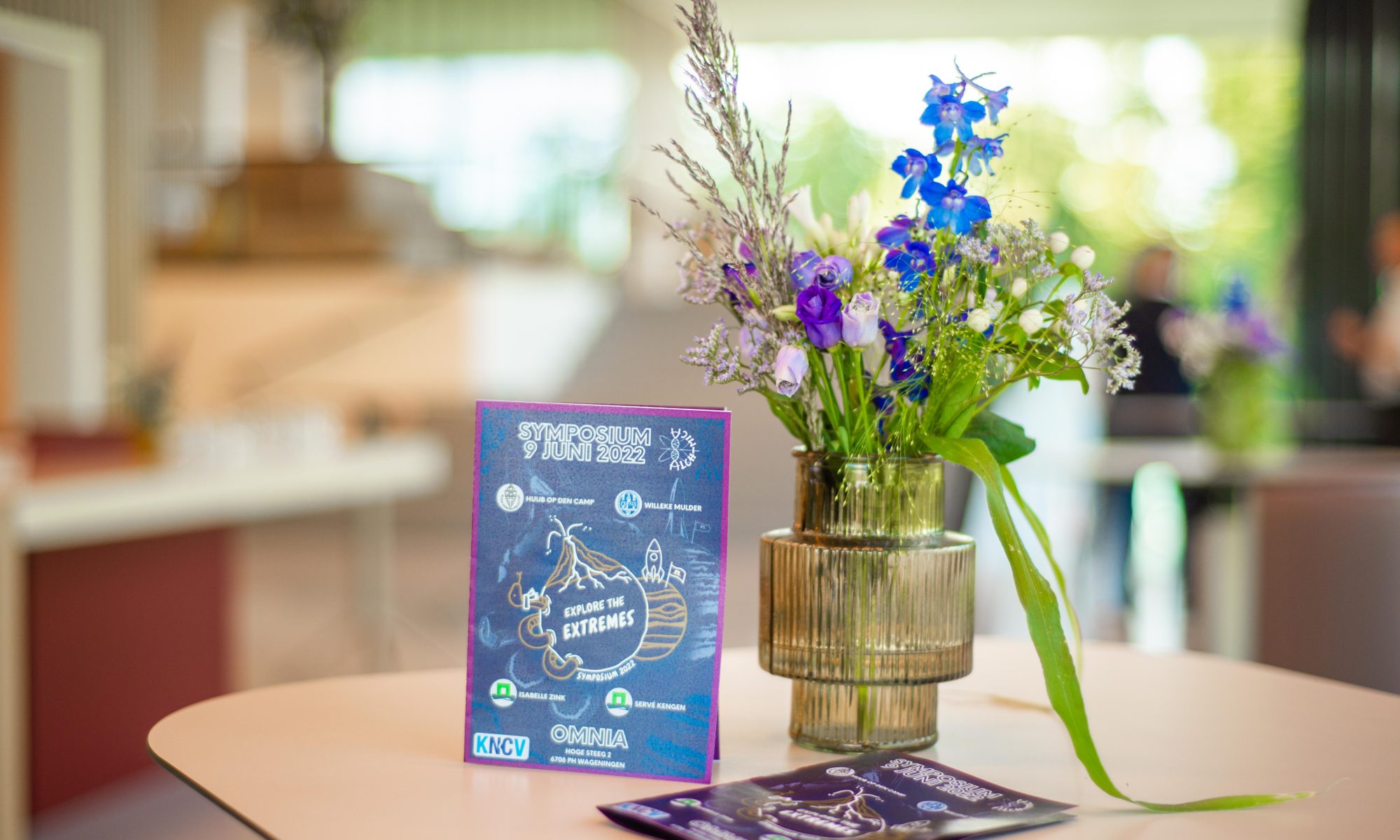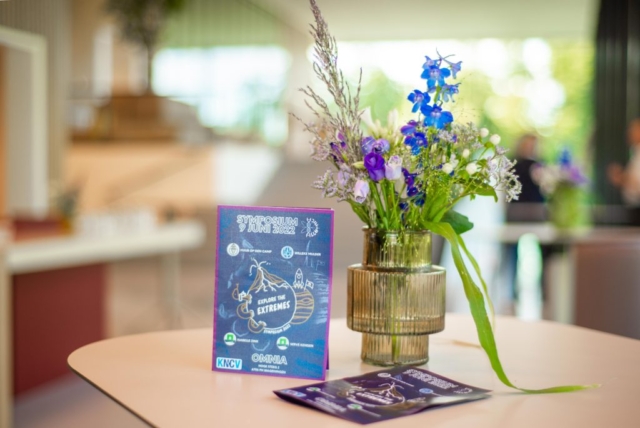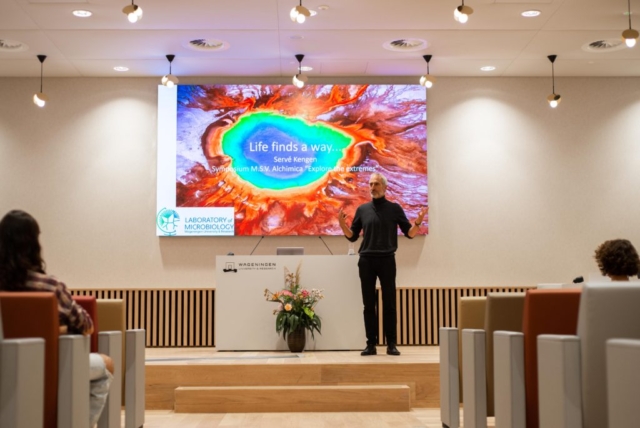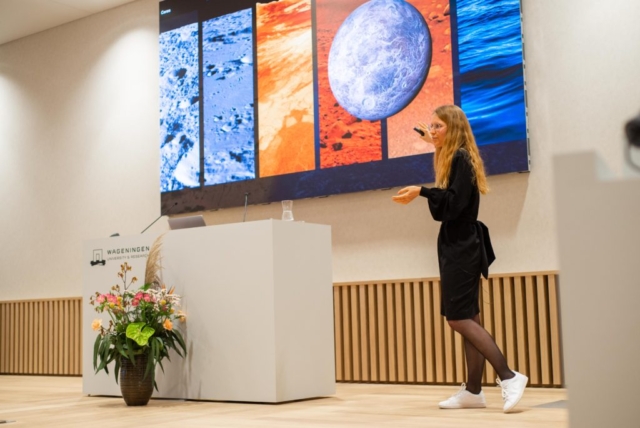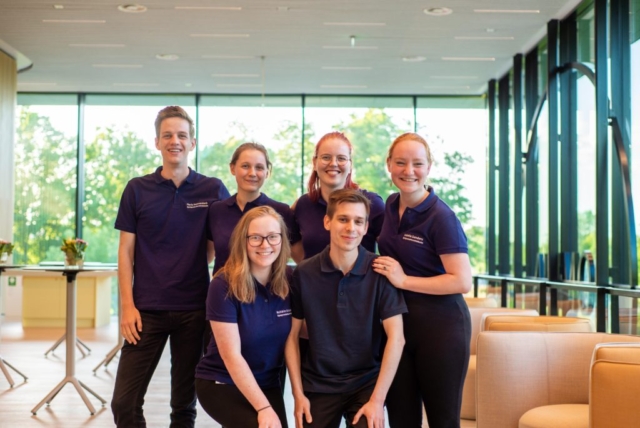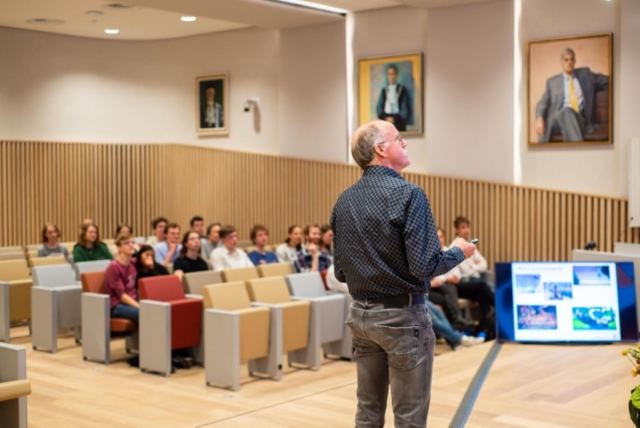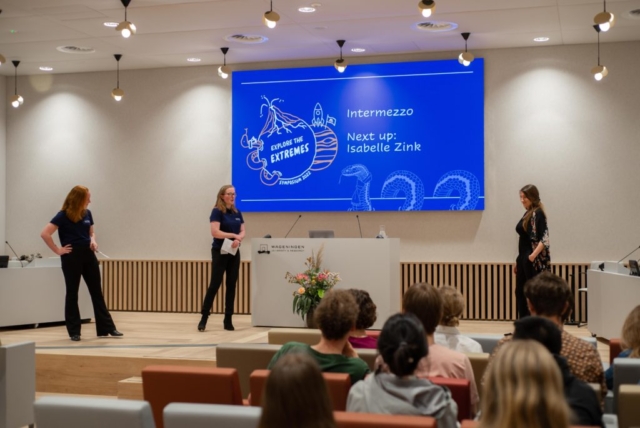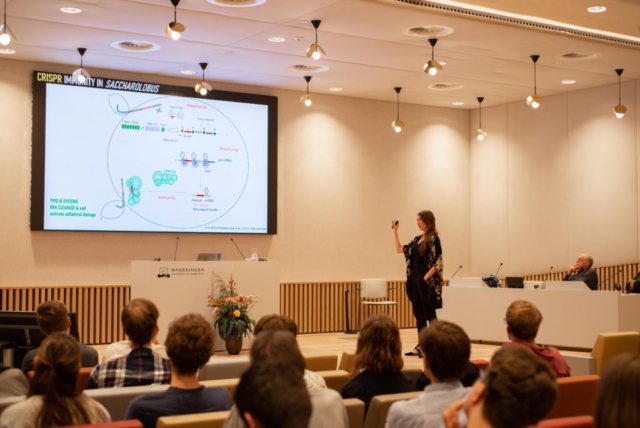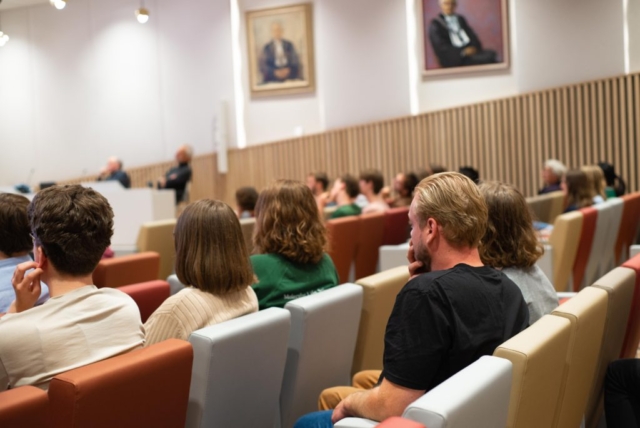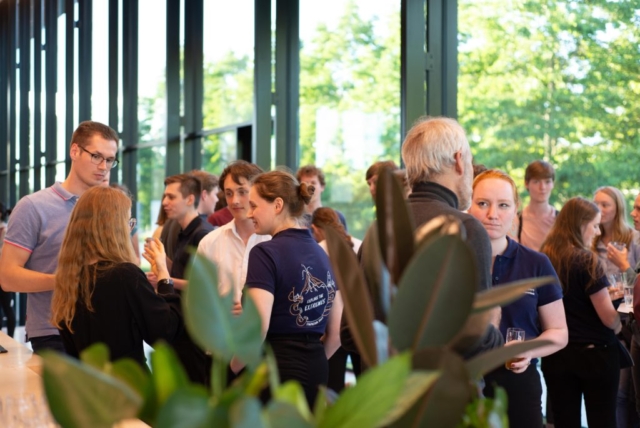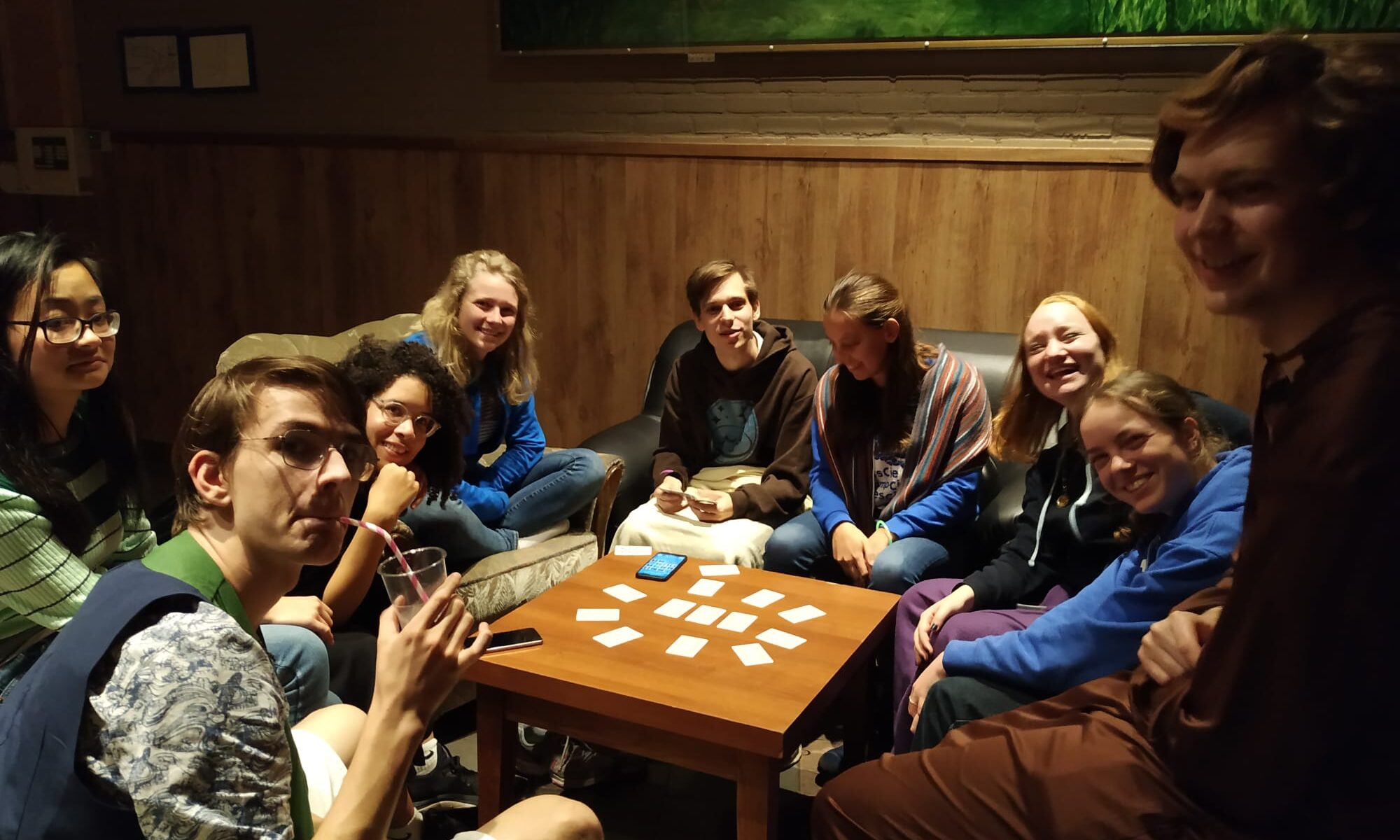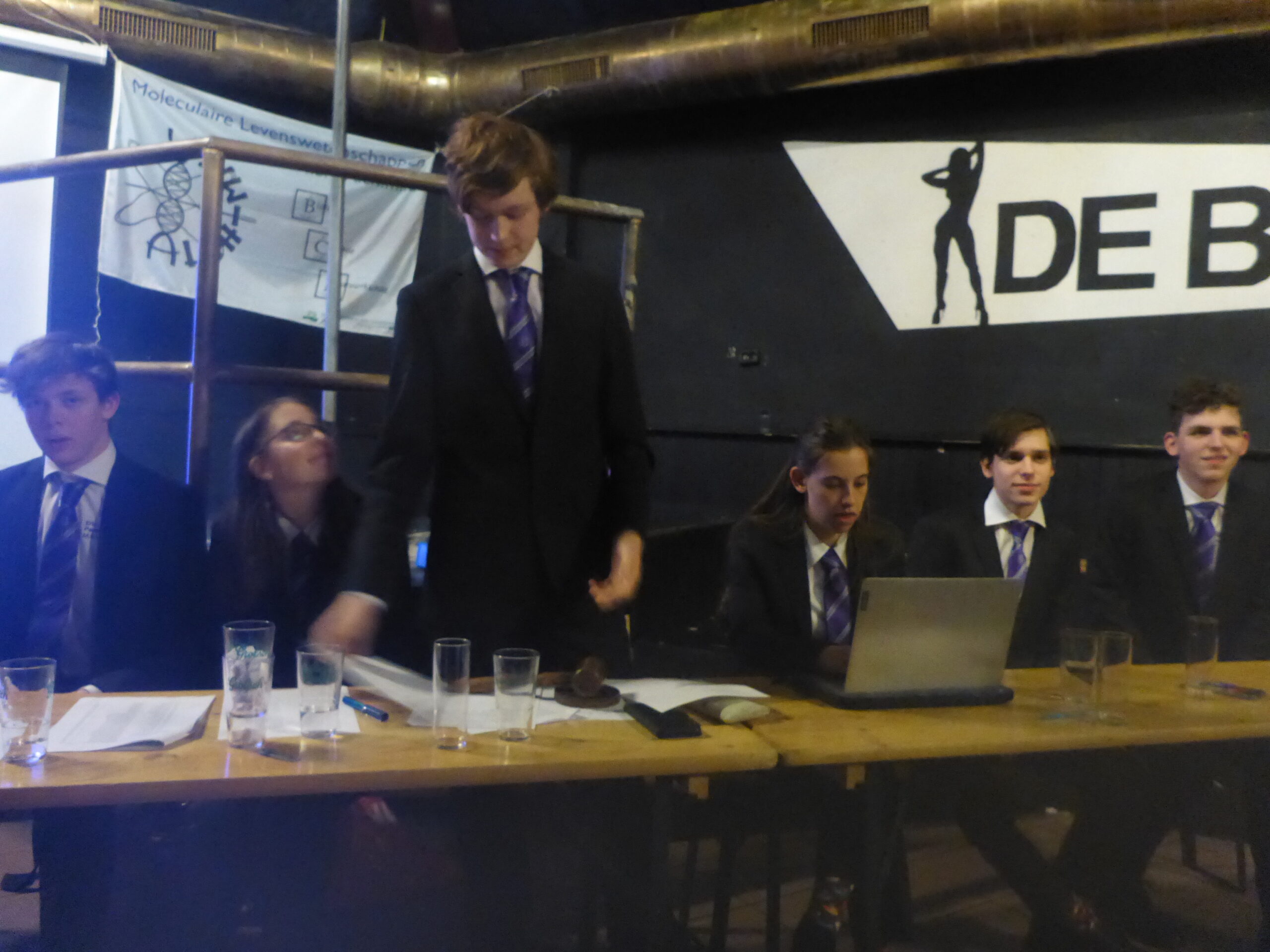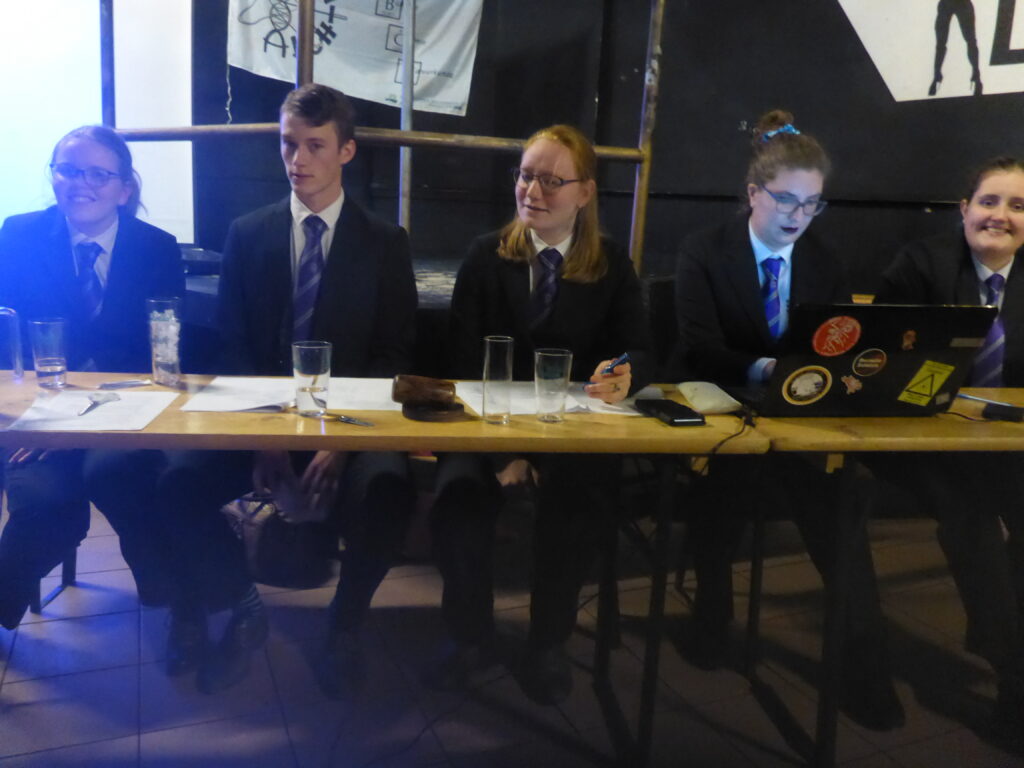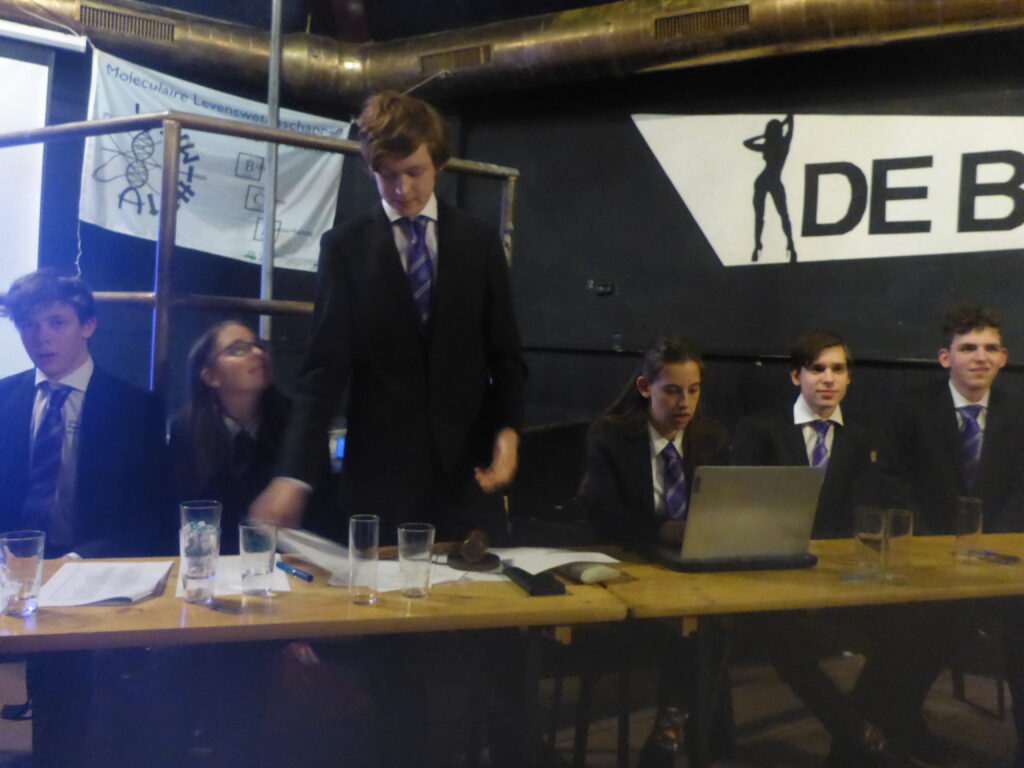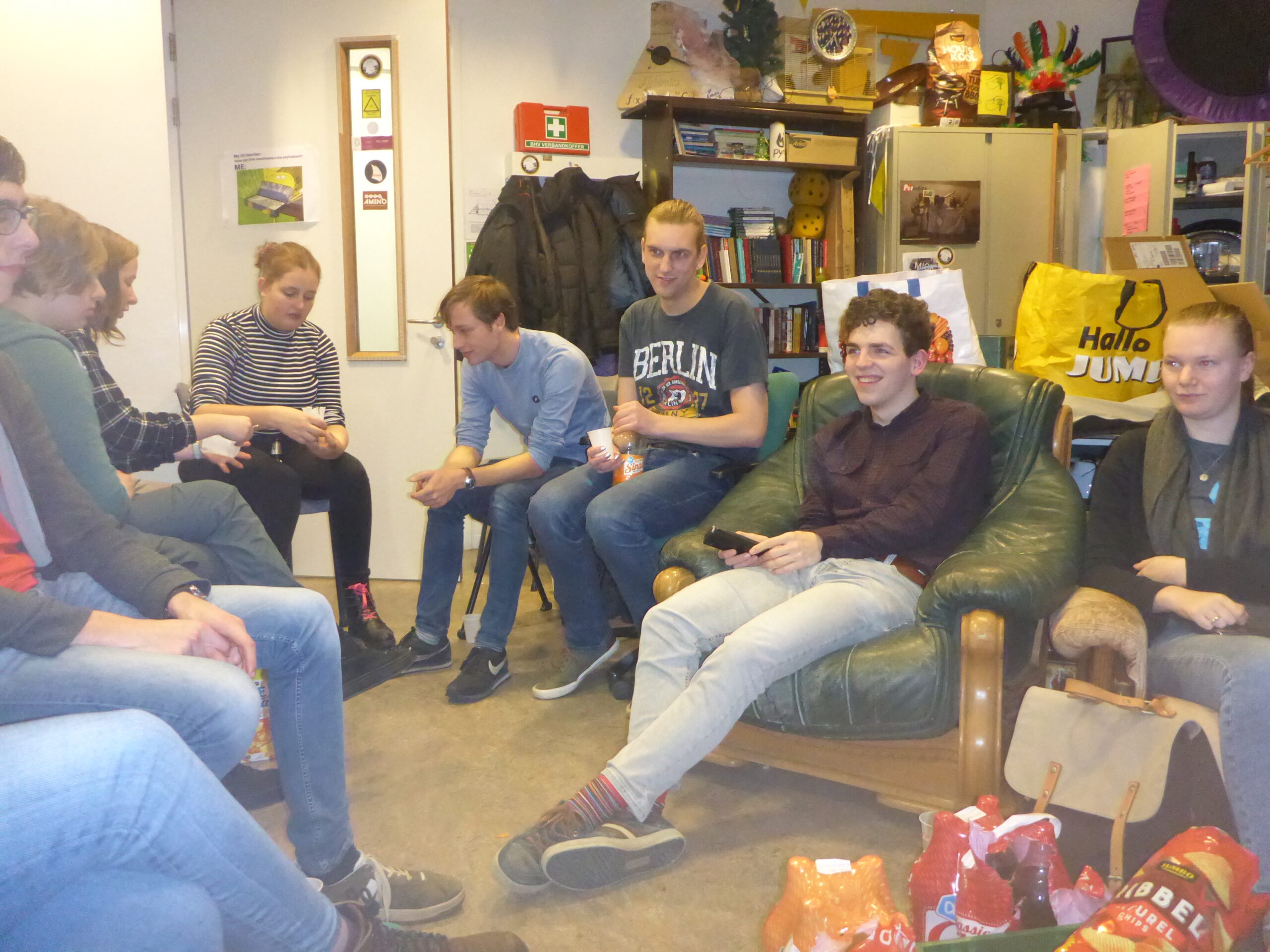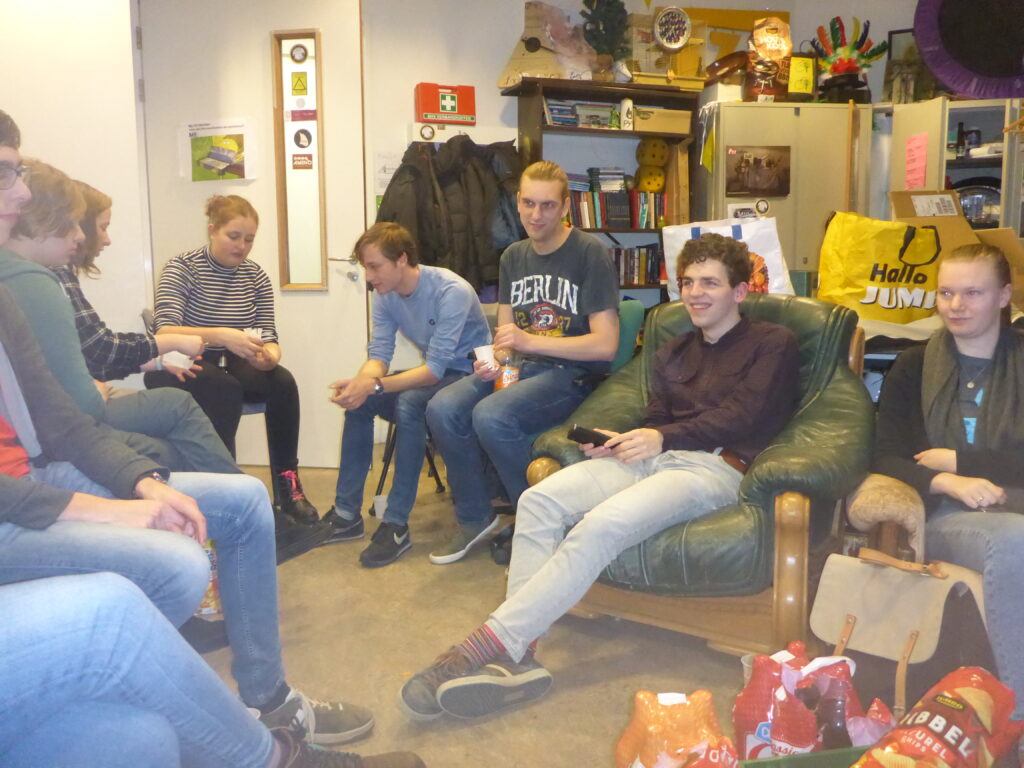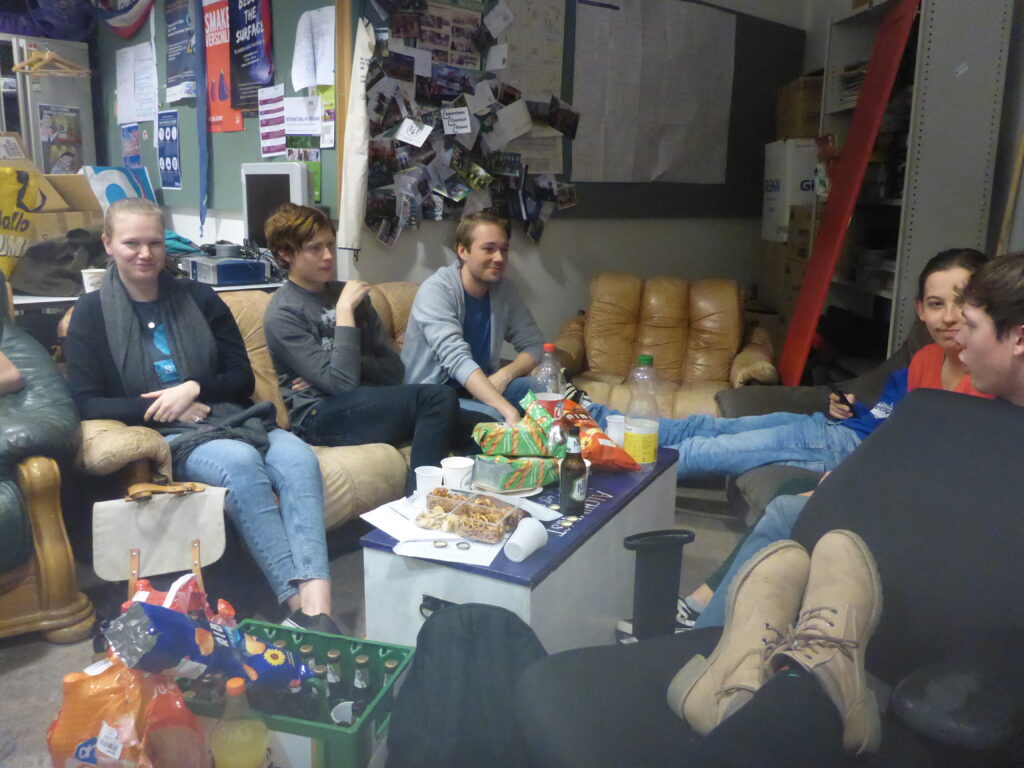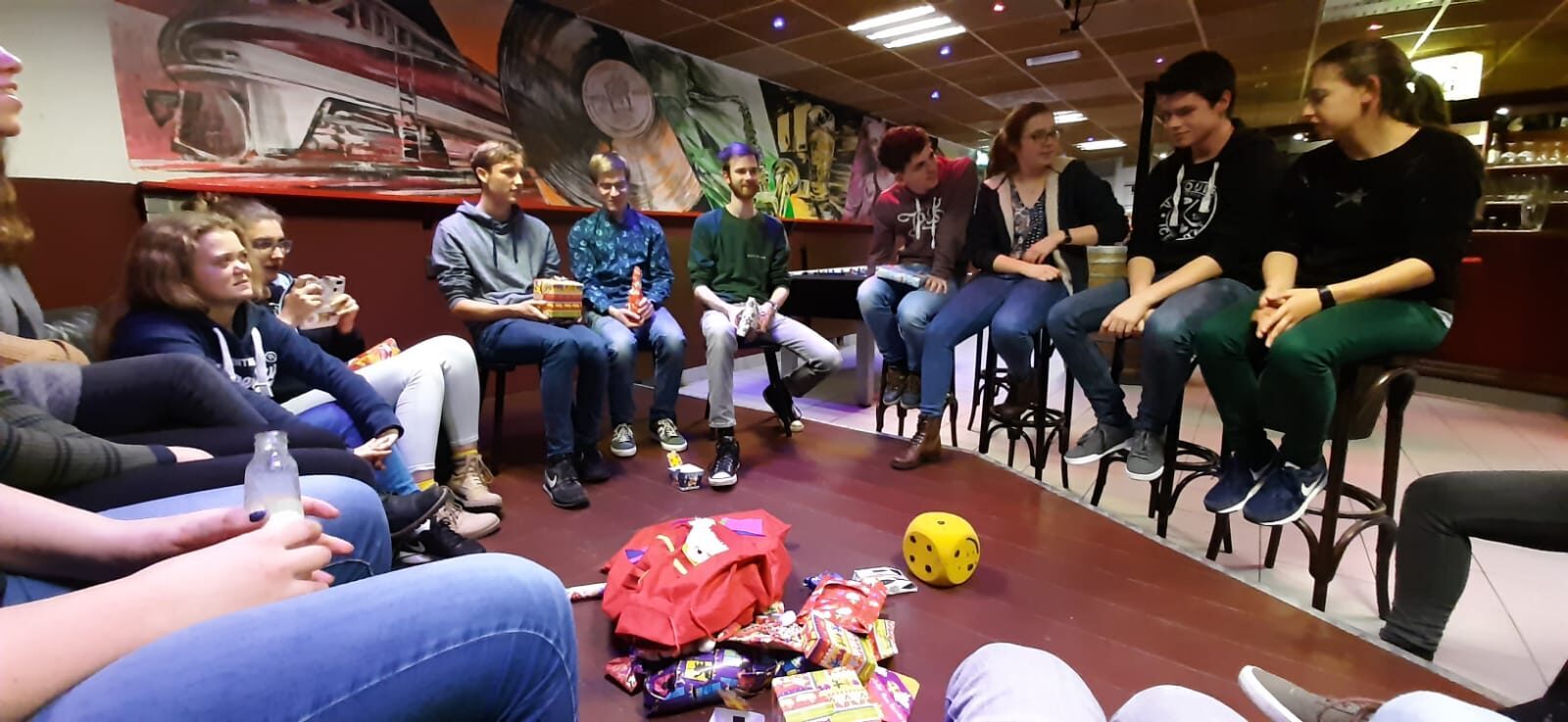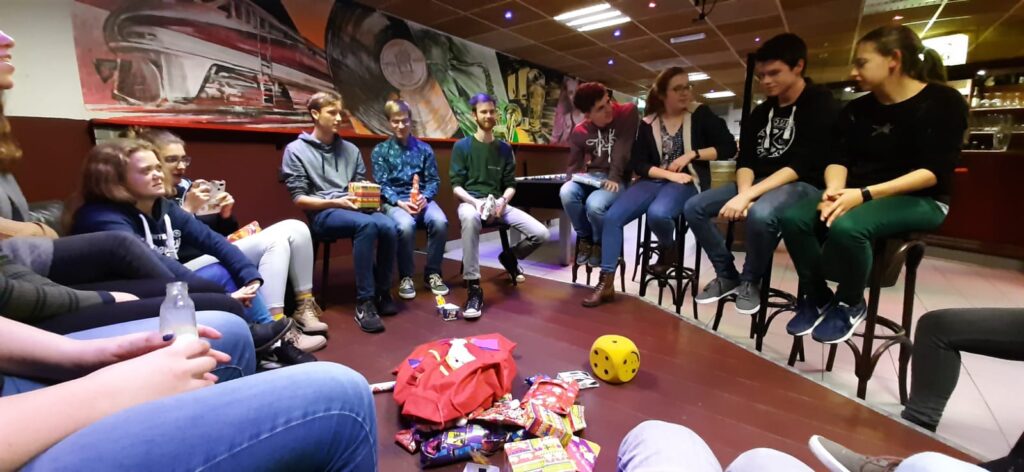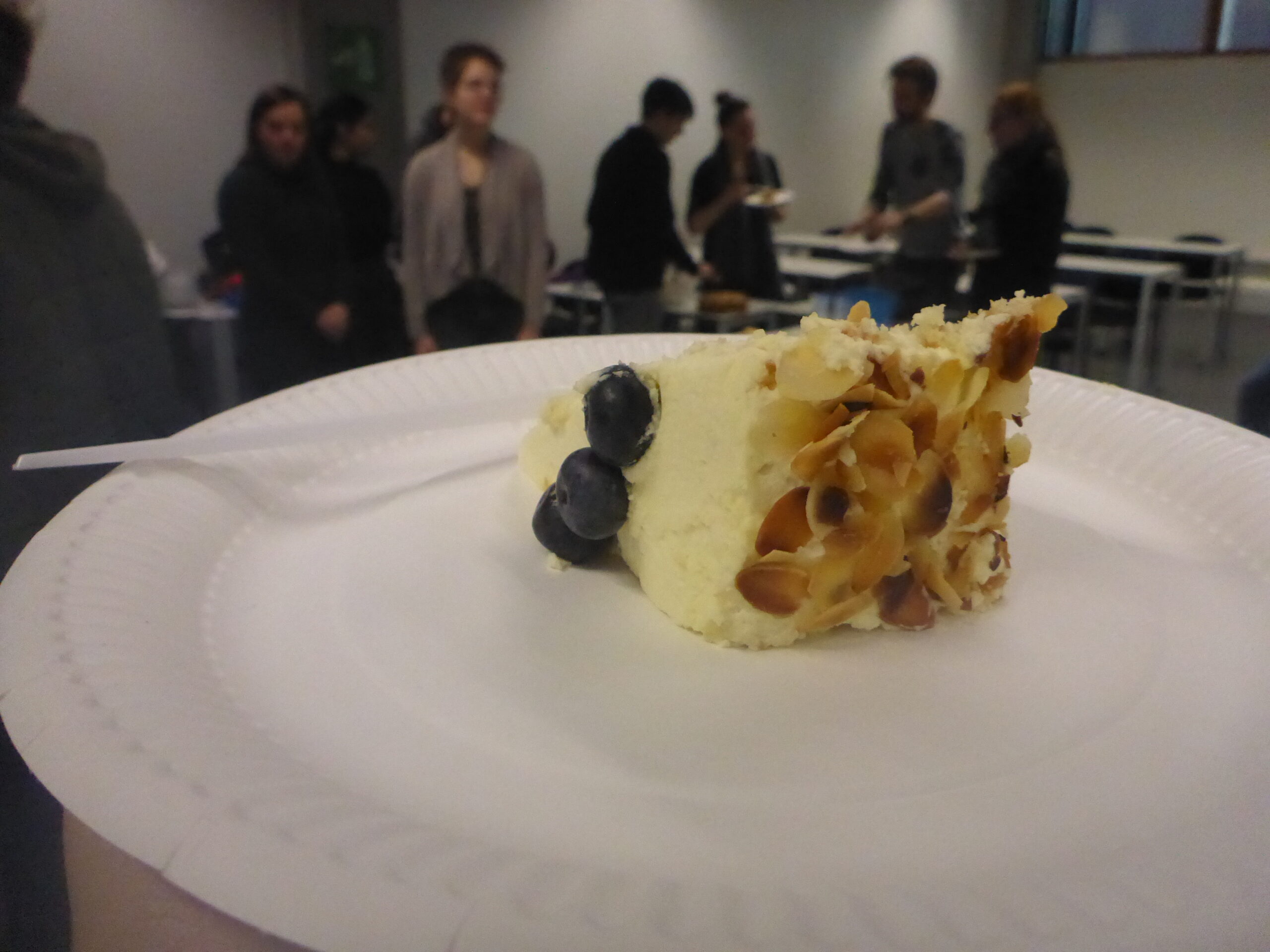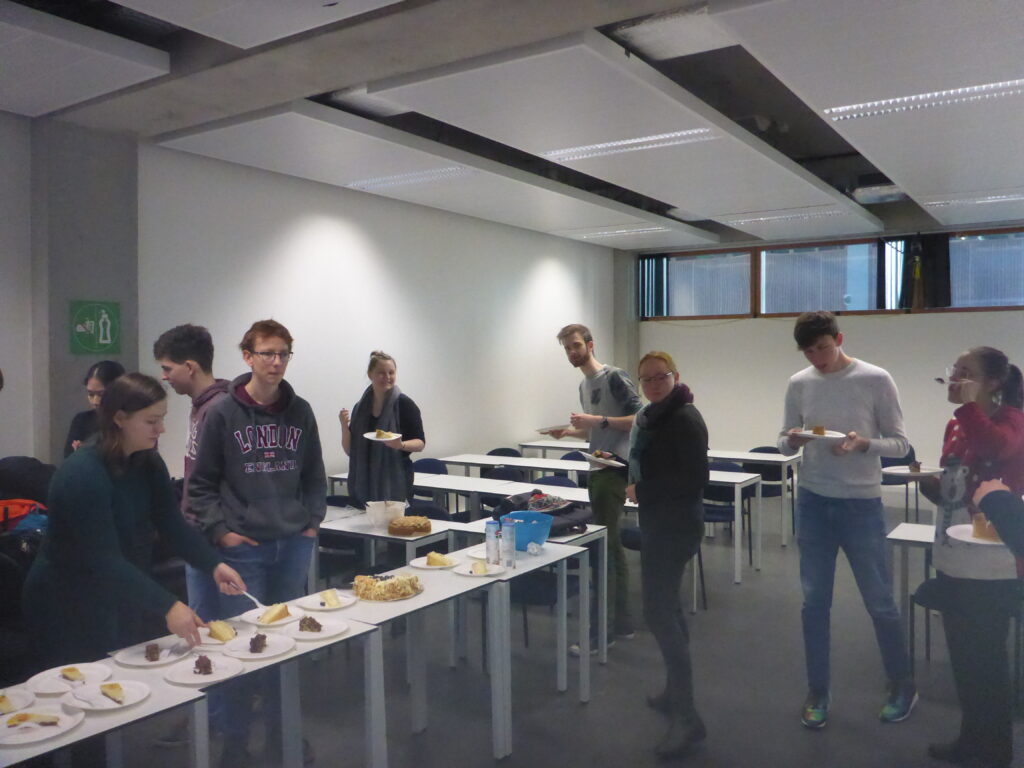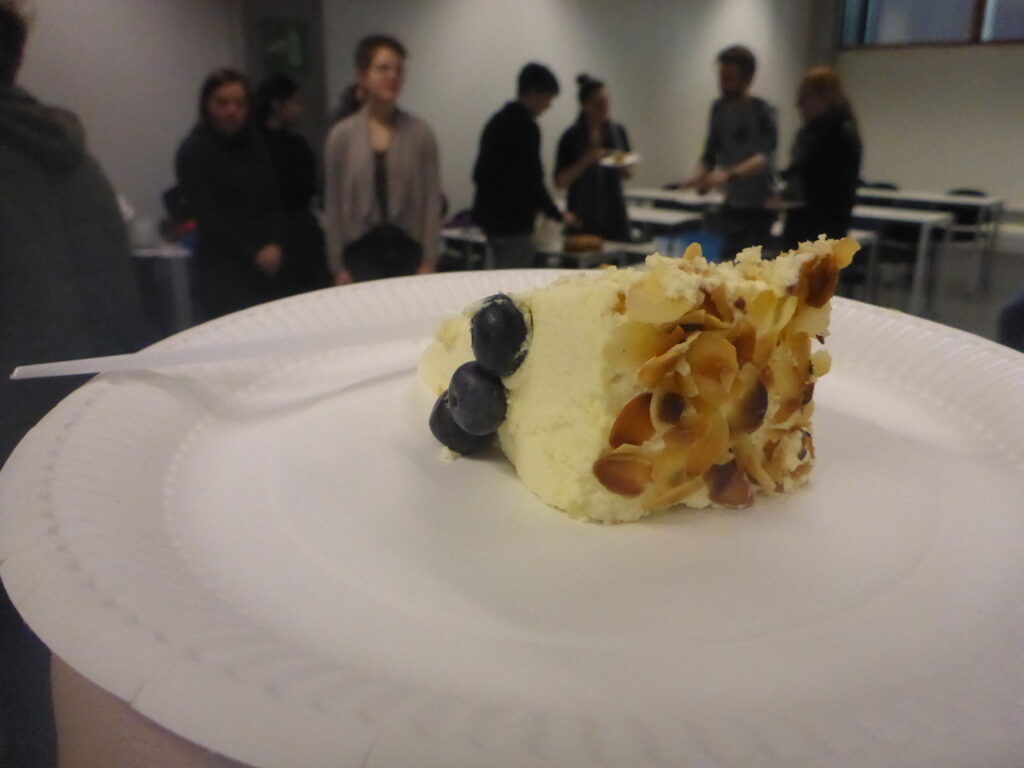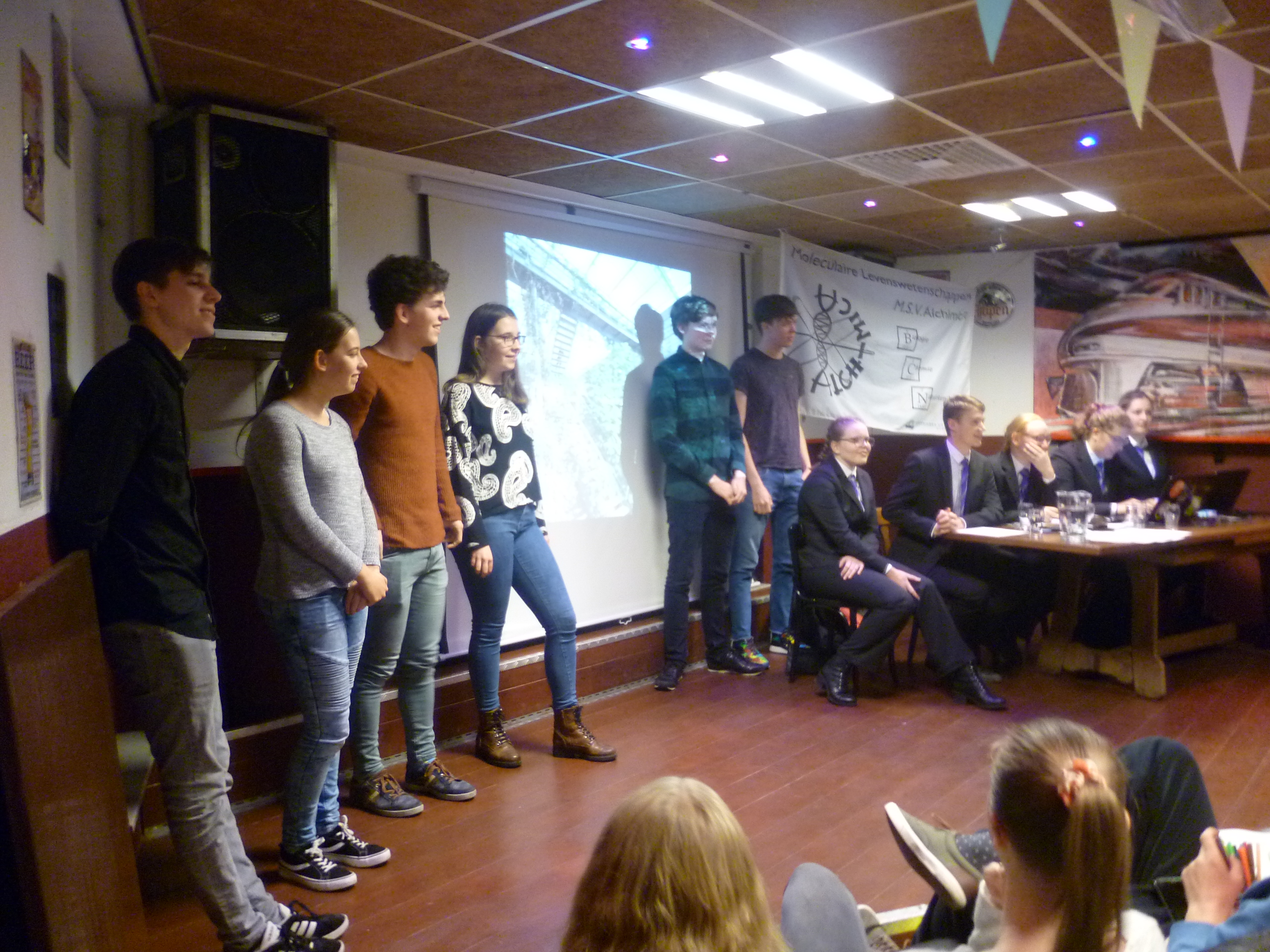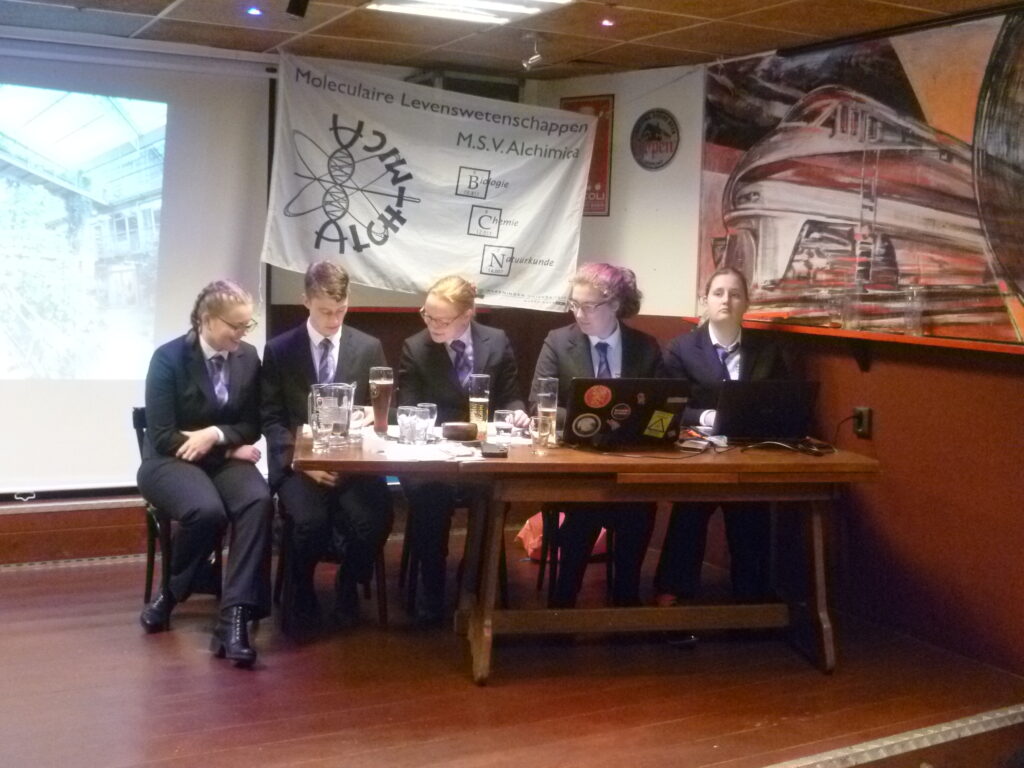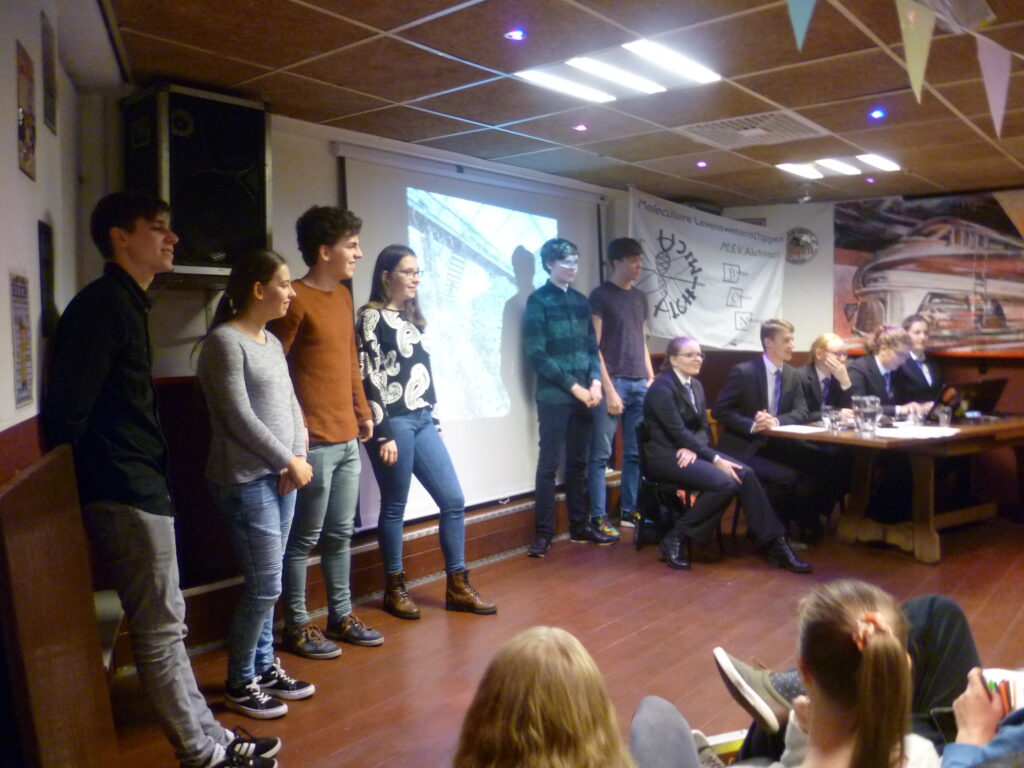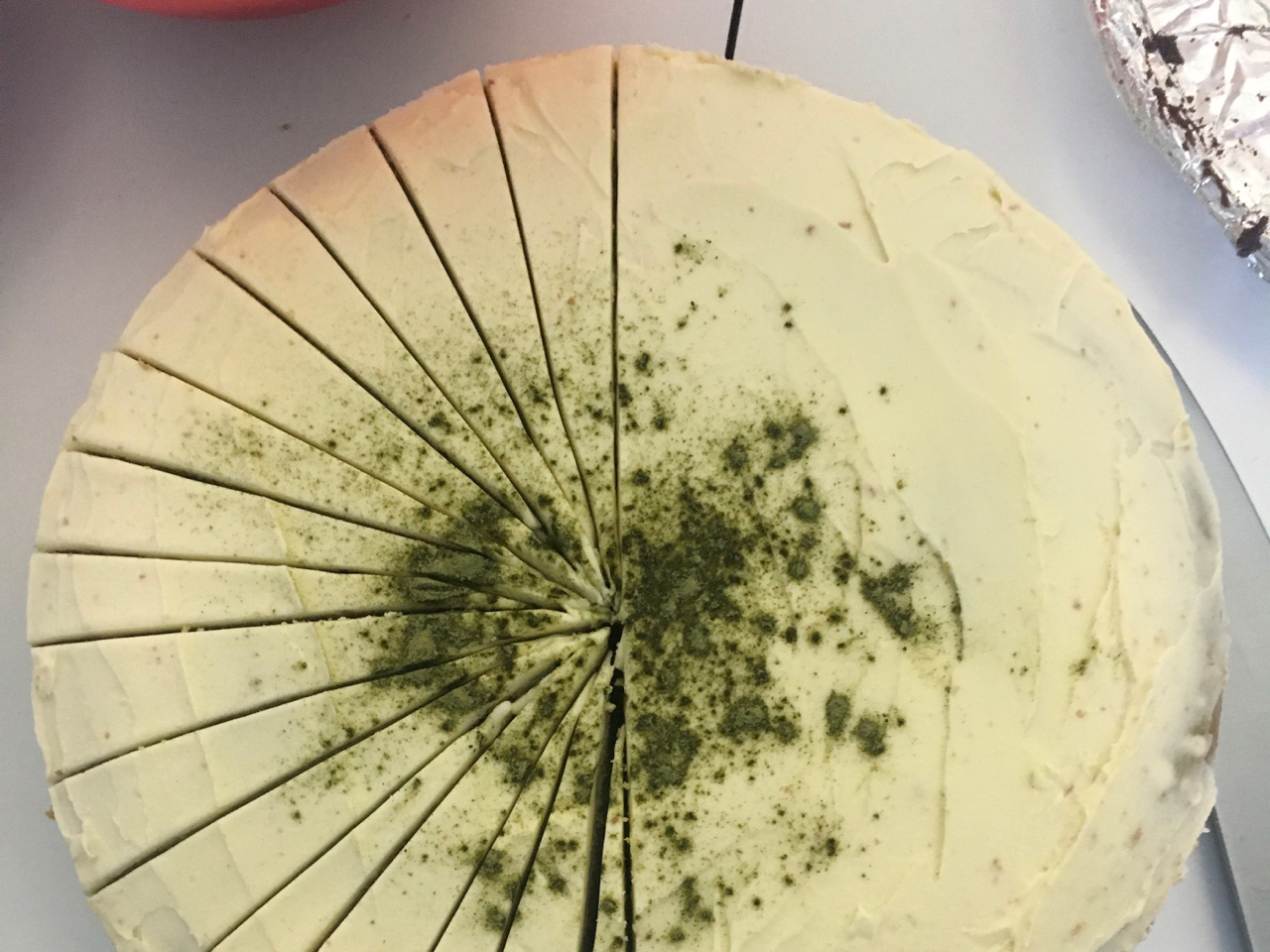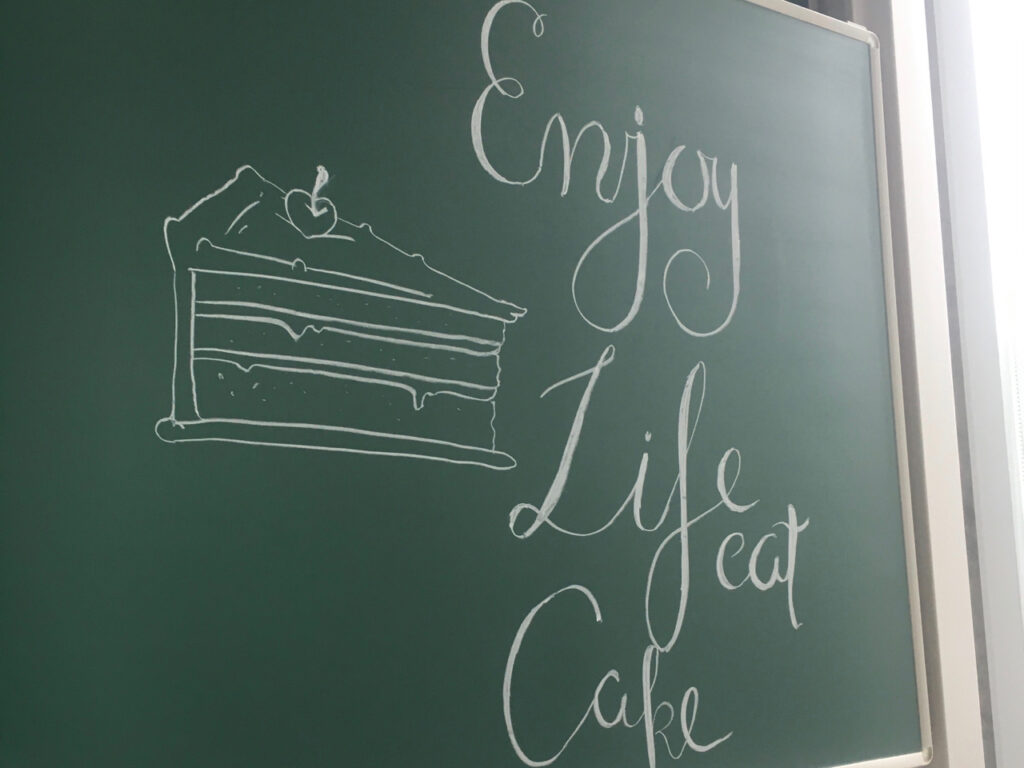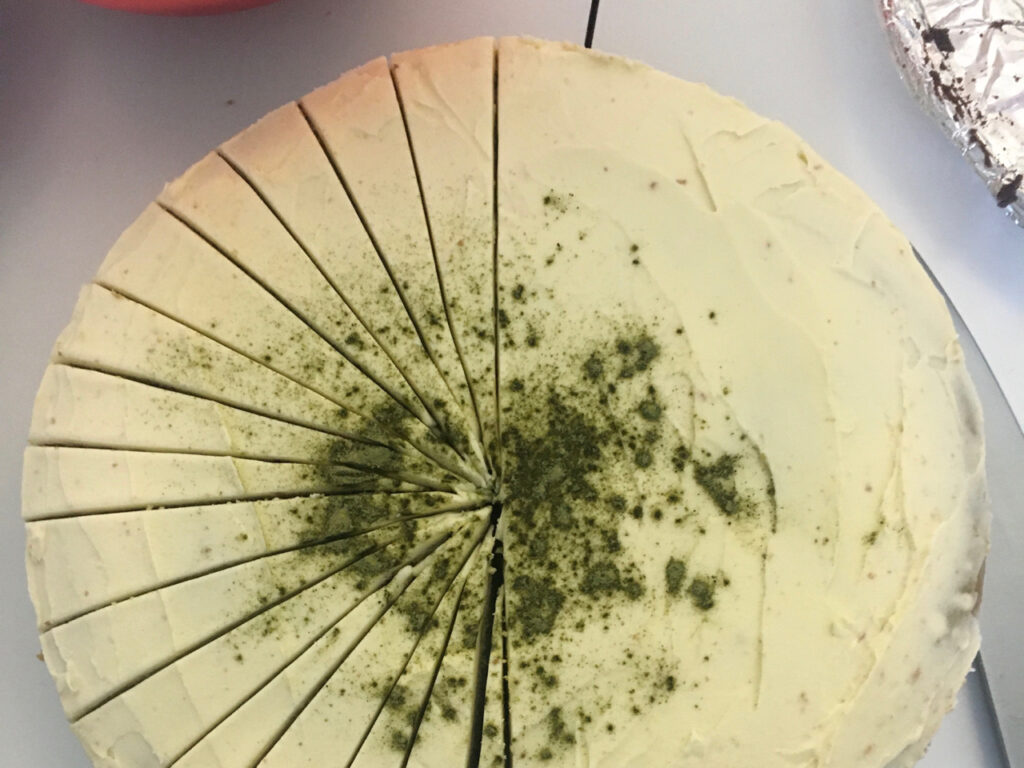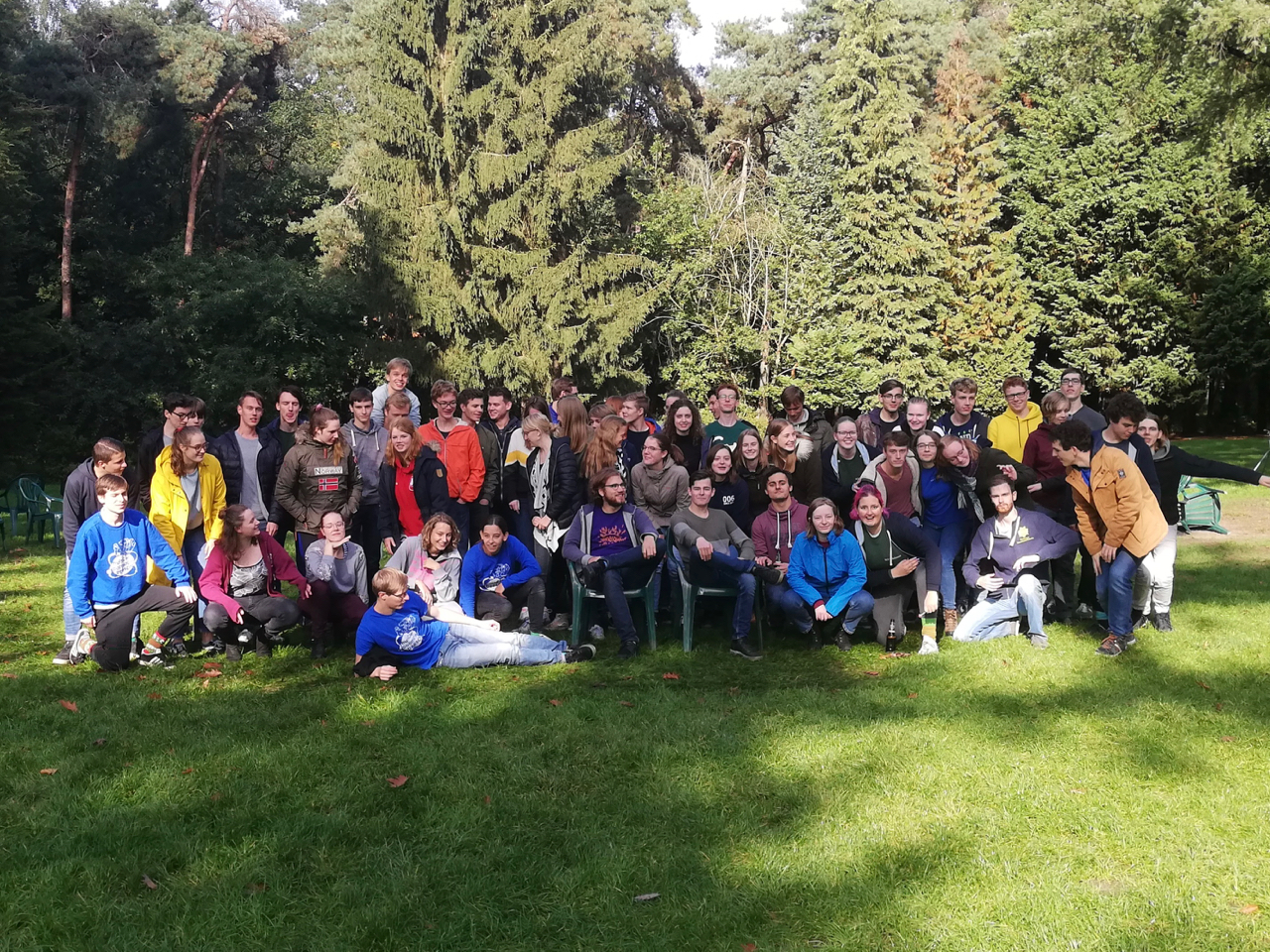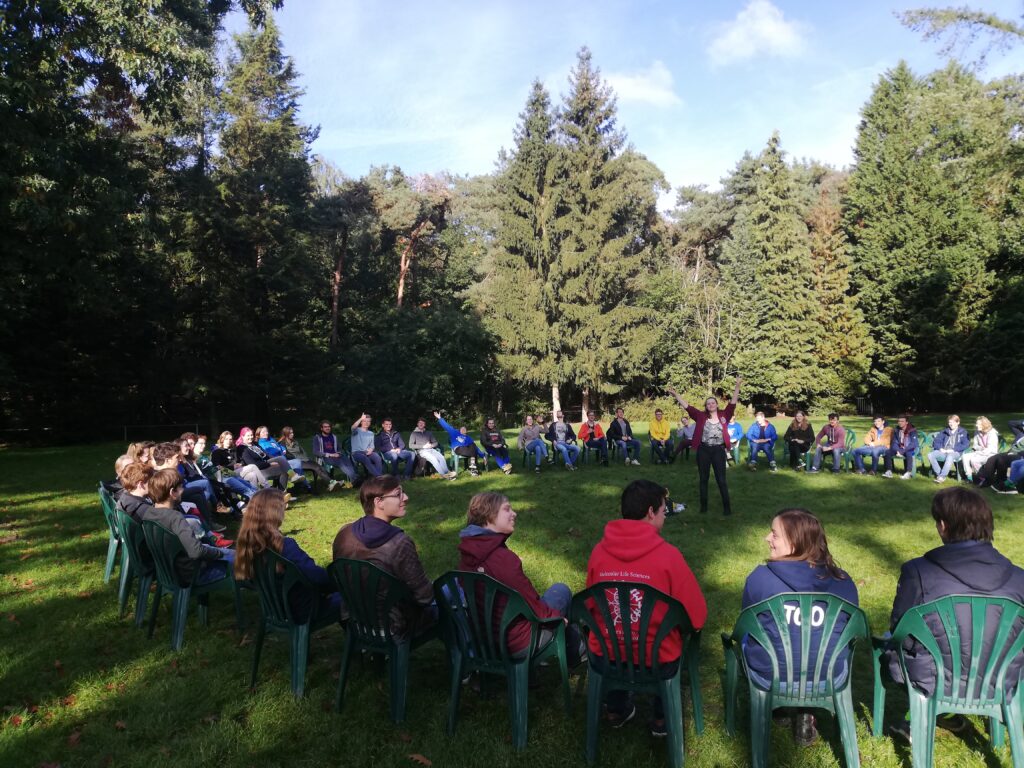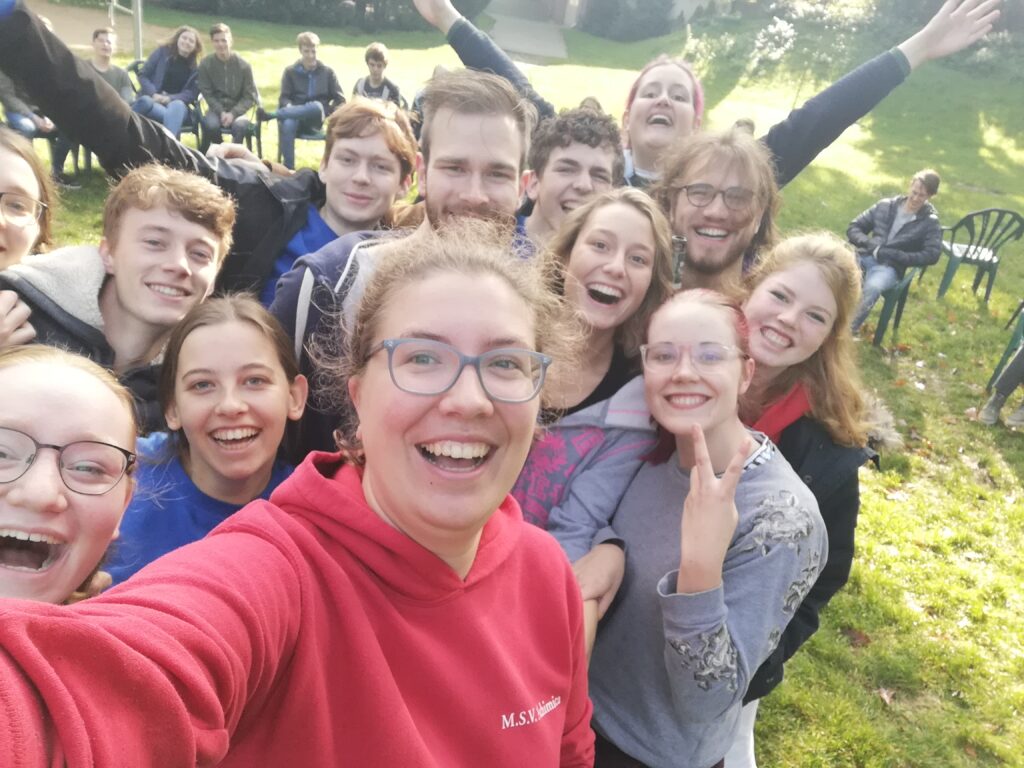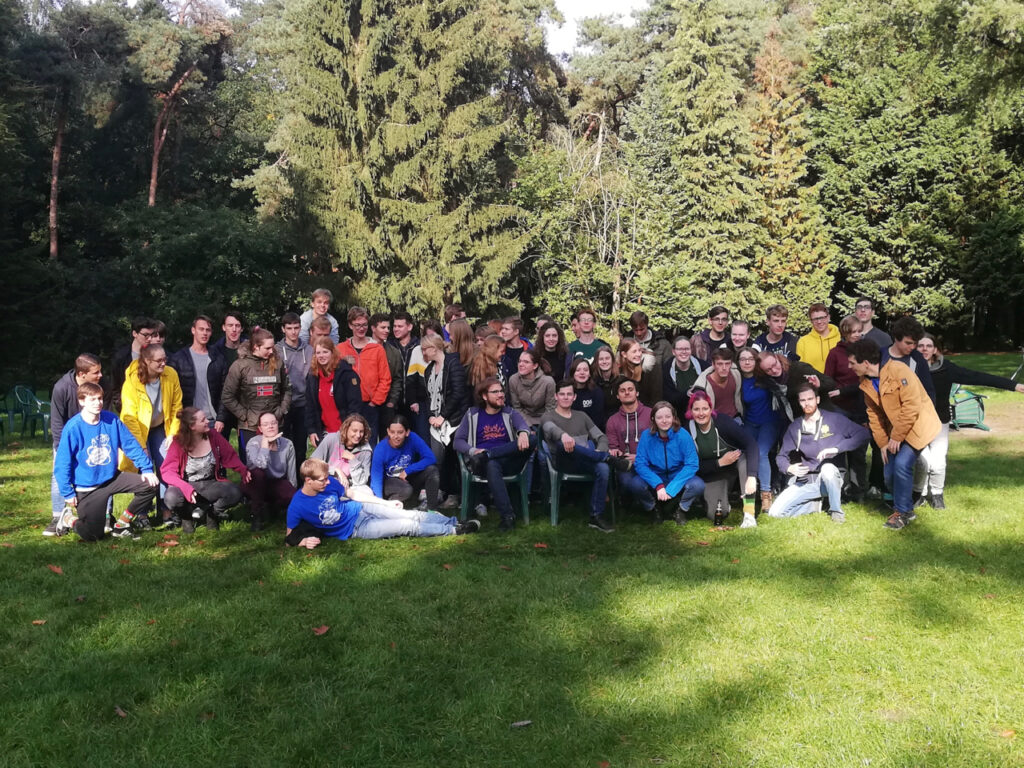Symposium Explore the Extremes
On June 9th we organized a symposium about extremophiles – organisms that live in conditions we would not consider suitable for life. With four interesting talks about different organisms and perspectives, we had an evening that was filled with curiosity and interest in the new Omnia building. Thank you Servé Kengen, Willeke Mulder, Huub op den Camp and Isabelle Zink for your wonderful contributions! And thanks to the symposium committee for organising this event and the KNCV for sponsoring it!
Photography: Circe van der Heijden
Symposium Committee
Isabella Sanders – President
Else Hiemstra – Vice President
Floris Helmendach – Secretary
Robbin Kramer – Treasurer
Maaike van Tol – Commissioner External Affairs
Martijn Ekhart – Commissioner Promotion
Playing games at the molecular weekend 2021
Lunch lecture Tanatex
On Wednesday the 16th of March, Wouter Biesta from Tanatex gave an interesting lunch lecture about the chemical processes involved in treating textiles to become stronger and more durable.
After telling us about his studies and career, Biesta introduced Tanatex and the chemistry of polyurethane as a new valuable technique to treat textiles. It was explained how polyurethane and other techniques can give textiles desired characteristics, like textile being strong, breathable, water resistant and waterproof. In addition, Biesta showed that the durability and quality of the textiles over time is studied and showed how the textiles are treated.
Also other diverse and creative treatments for creating textiles with unique properties were explained. Examples are extreme white materials, coloured textile that transmits light, creating an art piece resembling a textile version of a stain glass window, and textile treated with a scent that is freed when rubbing the textile.
The students got to feel and experience the difference between the treated and untreated textiles thanks to the sample handouts that were passed around.
Biesta ended his lecture with the note that the textile industry develops very rapidly, studying new, durable and improved treatments for textiles. This makes Tanatex an interesting opportunity for students to do an internship there. Biesta clearly showed that working with textiles requires ongoing research, creativity and thorough chemical knowledge. The lunch lecture gave a very nice insight in a specific application field of (organic) chemistry.
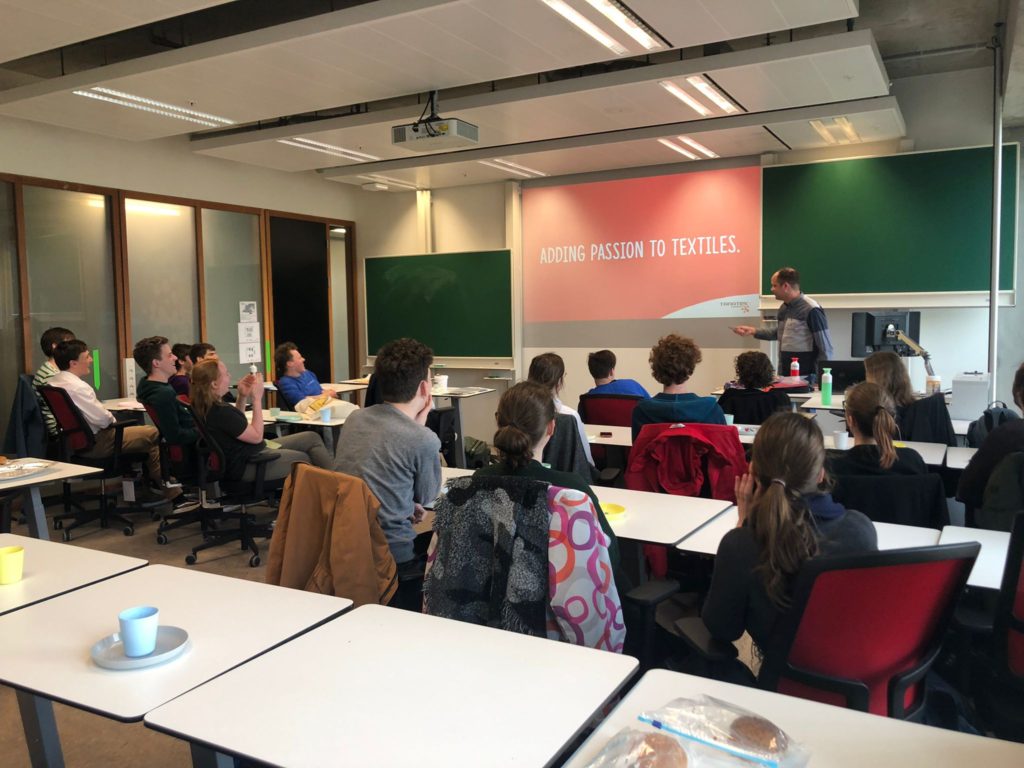
Absolute Antibodies
A short while back, Michael Fiebig from Absolute Antibody was kind enough to tell us about himself and his career in a lunch lecture. In his lecture, he talked about how he had started out in academia, doing research in various departments of the University of Oxford. After applying for numerous postdoc positions but getting no results, he was invited out for coffee by an acquaintance of him who offered him the opportunity to work in a start-up company called Absolute Antibody.
He had always been reluctant to do something different like this because he had believed that the skills he had honed throughout his academic career would not be transferable and that leaving academia meant leaving science, but after accepting the offer he was proven otherwise. The RNA-sequencing techniques and bio-informatics skills and programmes that he had practiced and made during his academic years proved to be great assets that are still being used to this day in his work at Absolute Antibodies.
Michael explained the different techniques that can be used to obtain antibodies and pointed out for each of them their advantages and disadvantages. He discussed the different types of antibodies and how he uses RNA-sequencing and recombination to design monoclonal antibodies that are specific for a target of interest. Now, after years of sequencing and designing, an ever-growing catalogue of different antibodies can be purchased through Absolute Antibody. This small start-up has branched out to encompass several countries and has manifold more employees than it had when Michael had just started his new journey, undoubtedly in part thanks to him.
During this lecture Michael has shown us that straying from academia does not mean leaving behind science. Even in corporations, your skills from university are still valuable. But most of all, the enthusiasm he has for his job and his field is inspiring and being able to listen to his lecture was a pleasure.


